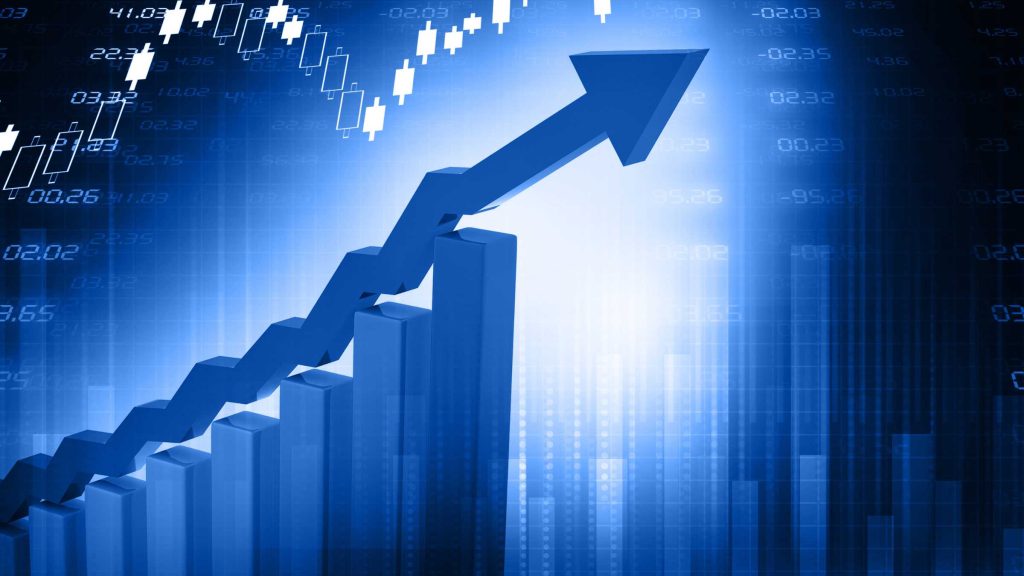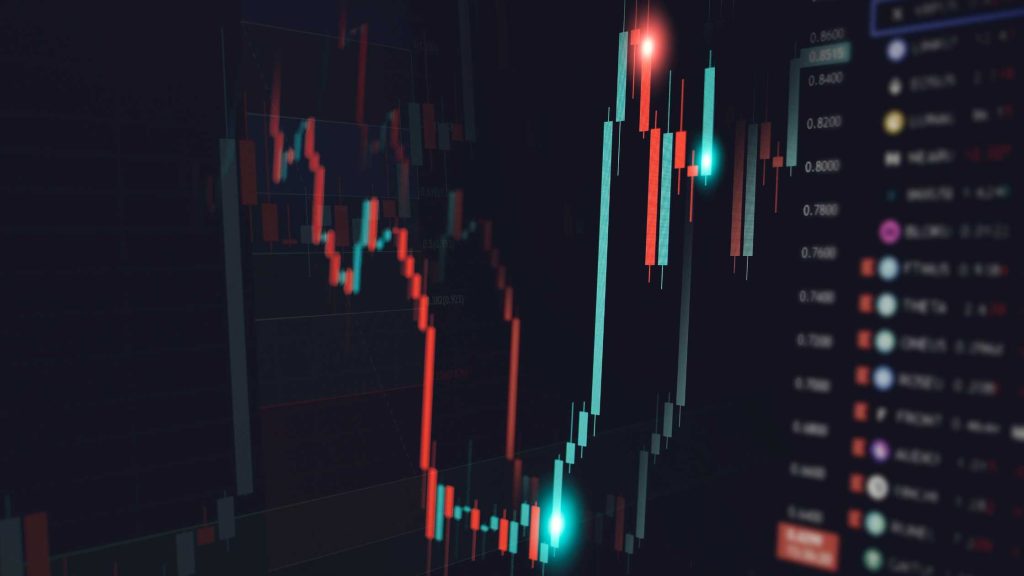Stock Market is Good or Bad ? : Comprehensive Guide 2024
Stock Market is Good or Bad : The stock market has long been a symbol of economic power, financial growth, and opportunity. Millions of people worldwide participate in stock markets to build wealth, diversify their investments, or simply engage in the thrill of trading. However, this arena is not without its risks and controversies. The question of whether the stock market is inherently good or bad is complex, as it offers numerous benefits yet carries significant risks.
Table of Contents
This essay explores the pros and cons of the stock market to help shed light on its potential as both a wealth-building tool and a source of financial instability. By understanding these dual aspects, individuals and policymakers can make informed decisions about how they engage with and regulate the stock market.
1. The Good: How the Stock Market Benefits Individuals and the Economy

The stock market plays a vital role in modern economies and personal wealth-building strategies. Below are some ways the stock market serves as a beneficial force.
a) Wealth Creation and Economic Growth
One of the most prominent benefits of the stock market is its potential for wealth creation. By investing in stocks, individuals have the chance to earn returns far exceeding those from traditional savings accounts or fixed deposits.
- Compound Growth: The stock market historically provides higher long-term returns than most other investments. Stocks tend to grow over time, and through compounding, this growth can accelerate. For example, the S&P 500 index in the United States has provided an average annual return of around 10% over the past century, making it an attractive option for long-term investors.
- Economic Impact: When individuals invest in stocks, they provide capital to businesses, helping companies grow, innovate, and hire more employees. In this way, the stock market supports job creation, increased productivity, and overall economic growth.
b) Liquidity and Flexibility
The stock market offers liquidity and flexibility, allowing investors to buy and sell shares quickly compared to other asset classes like real estate.
- Ease of Access: With online trading platforms and mobile apps, investing in the stock market has become accessible to people of all income levels and backgrounds. Individuals can now invest with as little or as much as they want, making the market more inclusive than ever.
- Flexibility: Stocks are highly liquid assets, meaning they can be easily converted into cash without a long waiting period. This flexibility is beneficial for investors who may need to access their funds in times of emergency or for new opportunities.
c) Diversification and Portfolio Management
The stock market allows for diversification, enabling investors to spread their investments across various industries, companies, and asset types to manage risk better.
- Risk Mitigation: Diversifying across sectors or geographic regions can help protect investors from risks associated with individual companies or specific industries. For example, if technology stocks are underperforming, investments in consumer goods or healthcare stocks may provide balance.
- Range of Investment Options: In addition to individual stocks, the market offers ETFs, mutual funds, and index funds, allowing investors to participate in the market without having to pick individual stocks. These investment options make it easier for beginners to build balanced portfolios.
d) Encouraging Savings and Financial Literacy
Stock market participation encourages financial literacy and a proactive approach to personal finance, promoting healthy saving and investment habits.
- Incentivizing Savings: The potential for returns in the stock market motivates people to save and invest, which is beneficial for personal financial security and retirement planning.
- Education and Awareness: Participation in the stock market pushes individuals to learn about financial markets, economics, and investing principles. This increased financial literacy is an asset for both individuals and society, as financially savvy citizens make better economic choices and are less vulnerable to scams and poor financial products.
e) Innovation and Entrepreneurship
Stock markets serve as a major funding source for companies seeking to grow and innovate, which contributes to technological advancement and economic progress.
- Raising Capital for Businesses: Companies can go public and issue shares, raising funds for expansion, research, and innovation. This funding can lead to breakthroughs in technology, healthcare, and other fields that improve quality of life and drive societal progress.
- Supporting Entrepreneurship: The ability to attract funding through public markets helps startups and entrepreneurs take risks and invest in new ideas. For example, many groundbreaking companies, from Apple to Tesla, have used stock markets to finance their growth and bring transformative products to market.
2. The Bad: Risks and Drawbacks of the Stock Market

While the stock market offers significant benefits, it is also associated with various risks and potential downsides. Understanding these risks is crucial for making informed investment decisions.
a) Volatility and Risk of Loss
The stock market is inherently volatile, and this can lead to substantial losses, particularly for those who are unprepared for market fluctuations.
- Market Fluctuations: Stock prices can be affected by numerous factors, including economic data, political events, corporate performance, and even rumors. Such volatility can result in rapid gains or significant losses, especially in the short term.
- Risk of Complete Loss: While long-term investing tends to mitigate some risk, there is always a chance of losing money, especially if a company goes bankrupt or experiences severe financial difficulties. Unlike fixed-income investments, stocks offer no guarantee of returns.
b) Psychological Challenges and Emotional Trading
Emotions often play a significant role in stock market behavior, and this can lead to impulsive decisions that may harm investors.
- Fear and Greed: Two powerful emotions drive market psychology: fear and greed. During market upswings, investors may become overly optimistic and make risky investments. Conversely, in downturns, they may panic-sell, locking in losses. This “herd mentality” can lead to substantial financial harm.
- Cognitive Biases: Investors are often influenced by cognitive biases, such as the tendency to hold onto losing stocks due to loss aversion or to overvalue recent information. These biases can negatively impact investment decisions, resulting in poor portfolio performance.
c) Susceptibility to Manipulation and Speculation
The stock market can be manipulated by large investors, creating imbalances that harm smaller retail investors.
- Market Manipulation: Certain entities with large capital reserves can manipulate stock prices by creating artificial demand or spreading false information. Market manipulation harms small investors who may not have access to real-time information or insights.
- Speculative Trading: The rise of short-term trading, day trading, and speculative strategies can destabilize markets. High-frequency trading (HFT), for example, creates an uneven playing field where algorithms execute trades in fractions of a second, often at the expense of individual investors.
d) Economic Disparities and Inequality
The stock market can contribute to economic inequality, as those with more resources are better positioned to benefit from stock investments.
- Wealth Disparities: Stock ownership is often concentrated among the wealthy, as they have the capital to invest and withstand market downturns. While accessible to more people than ever, the stock market still disproportionately benefits individuals and institutions with significant resources.
- Barrier to Entry: Although digital platforms have lowered the barriers, some people still lack the resources, knowledge, or time to engage effectively in the stock market, leading to disparities in financial opportunity.
e) Economic Impact and Recessions
The stock market can both reflect and amplify economic issues, potentially leading to broader economic instability.
- Market Crashes: History has shown that stock market crashes can lead to severe economic downturns, affecting employment rates, consumer spending, and overall economic growth. The Great Depression of 1929 and the financial crisis of 2008 are two examples of how stock market crashes can have long-lasting economic consequences.
- Contagion Effect: Due to globalization and interconnected markets, a crisis in one country’s stock market can quickly spread to others, affecting global financial stability. This contagion effect can lead to widespread economic issues that impact both investors and non-investors alike.
3. Finding Balance: Approaches to Minimize Stock Market Risks

While risks are inherent in the stock market, there are strategies to minimize exposure and enhance the benefits of investing.
a) Long-Term Investing and Diversification
One of the best ways to manage risk in the stock market is through long-term investing and portfolio diversification.
- Long-Term Perspective: Historical data shows that long-term investing reduces the impact of short-term volatility, providing more stable returns over time. Investors who hold onto quality stocks for years, or even decades, tend to fare better than those who frequently buy and sell.
- Diverse Portfolio: Spreading investments across different sectors, regions, and asset classes (such as stocks, bonds, and real estate) can help cushion the effects of market downturns.
b) Financial Education and Awareness
Knowledge is a powerful tool for mitigating the risks associated with stock market investment.
- Investor Education: Developing a strong understanding of stock market principles, economic indicators, and risk management strategies helps individuals make informed decisions, reducing the likelihood of impulsive trading.
- Financial Literacy Programs: Policymakers and educational institutions can promote financial literacy, helping people of all ages become knowledgeable investors who understand both the benefits and risks associated with stock market participation.
c) Regulatory Measures
Governments and financial institutions play a key role in reducing market manipulation and protecting investors.
- Market Regulations: Regulatory bodies, like the Securities and Exchange Commission (SEC) in the United States, impose rules to prevent fraud, insider trading, and market manipulation, providing more transparency and security for all investors.
- Investor Protections: Policies that protect smaller investors and promote transparency contribute to a more equitable and stable market environment. Initiatives like mandatory disclosures and fair trading practices make the stock market a safer place for individual investors.
Stock Market is Good or Bad : Conclusion

The stock market is neither entirely good nor entirely bad. It serves as a crucial economic tool with the potential for wealth creation, innovation, and financial growth. However, it also carries risks, from market volatility to economic inequality, that cannot be ignored. Whether the stock market is beneficial or harmful largely depends on how it is approached, managed, and regulated.
Also Read : Mutual Funds Gain : Up to 30 Percent Gain ? : Have You Invested ?
For individuals, a balanced approach that includes education, diversification, and a long-term perspective can help maximize the benefits of stock market investing while minimizing its risks. For society, policies that promote transparency, financial literacy, and investor protections can create a more equitable market environment that benefits a larger segment of the population.
Buy Now : Job Portal – Jobs Listing and Resume Builder – Website and Admin Panel
In sum, the stock market offers immense opportunities and significant challenges. It is neither good nor bad in isolation but a reflection of the broader economic landscape. Embracing the stock market’s potential while mitigating its risks can lead to a healthier economy, greater innovation, and improved financial security for individuals and societies alike.
Keywords : Stock Market is Good or Bad – Stock Market is Good or Bad 2024 – Stock Market is Good or Bad 2025 , Stock Market is Good or Bad news , Stock Market is Good or Bad essay , Stock Market is Good or Bad details



